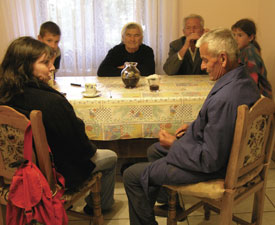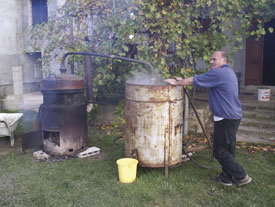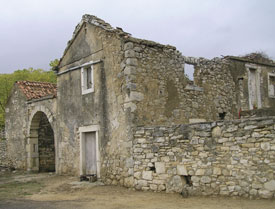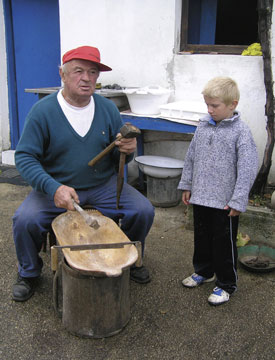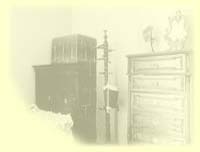
* Local customs
Evaluation of the cultural heritage has been carried out by the Department of Ethnology and Cultural Anthropology of University of Zagreb and includes scientific research about the traditions and cultural heritage of the mixed ethnic villages of Islam Grčki, Islam Latinski and Kašić. The specific subjects are: traditional architecture, traditional energy sources and their usage, working practices particularly related to agriculture, the structure of communications in the Ravni Kotari area, trade, market, social life, traditional food and medicine. The results of the research will be evaluated and their feasibility within the revitalisation of the villages explored. Local people and those who are still in exile have also been included in the research.
Six students in their forth year of BA study of Ethnology and Cultural Antropology participated in the field research in the area of the villages of Islam Grčki, Islam Latinski (hamlets: Grgurice, Rupalj), Kašić, Smilčić and Podgradina.
The first research was carried out at the beginning of November 2005 and it lasted seven days. Each of the students chose their own theme and conducted research guided by a field education coordinator.
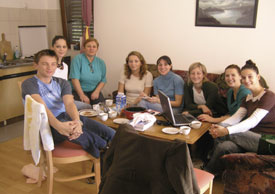 |
|---|
The technique used in the research was by interviews and students spoke with local inhabitants. They spoke with more than 50 people. The conversations were recorded using dictaphones and about 250 hours of conversations were recorded.
Students speaking with local inhabitants.Themes of research: traditional architecture (culture of habitation), traditional energy sources and their usage (a miller’s trade and watermills), traditional food, traditional medicine (healing properties of wild medicinal herbs and hygiene), traditional hunting of animals without fire arms, traditional agriculture, water supply and irrigation, growing olives, grape growing, traditional yearly rituals (Easter, Christmas, folk religion-Saint’s days)
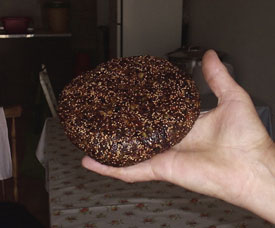
Sweets made of figs – ‘smokvenjak'
Distilling of alcoholic drink - rakija
The material culture was recorded photographical (an archive of several hunderd digital photographs was created), and old family photographs and documents were scanned so they can be used for future reasearch.
Traditional architecture
After returning to Zagreb the students presented their results to other members of the project ‘Mostovi’. During winter period they worked on the collected material (transcribing conversations, comparing them, analysing them and synthesised them as well as noting missing parts for additional future research).
The second research was conducted in April 2006 when two other history students joined the the previous group of ethnology students. The ethnology and cultural antropology students upgraded and corrected data collected in the first research according to their themes. The history students researched the toponyms of the region. They spoke with local inhabitants and compared the information with data from the 18th century cadastre which were copied in the State Archive in Zadar. The students spoke with more than 60 people. The results of their research will be publish.
website by Vidagents
